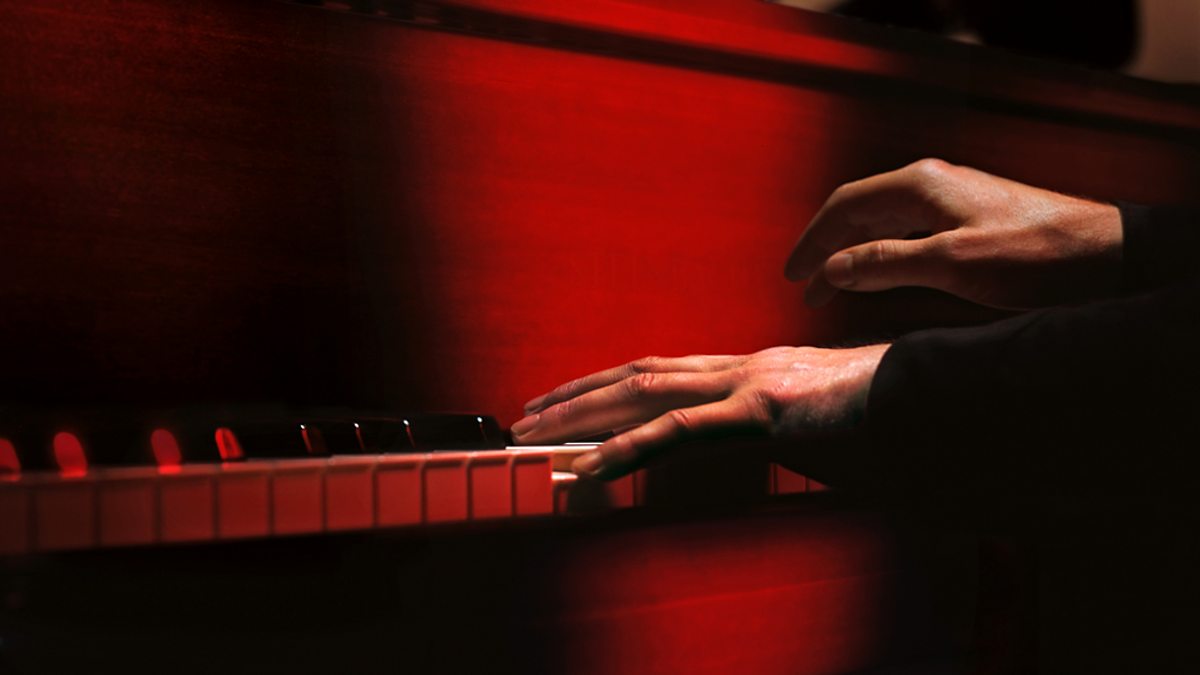apparently this is the third series of this series. back in February we had A major, E minor and C sharp major. presumably eventually all keys will have been covered.
Key Matters - Exploring their Moods.
Collapse
X
-
Won't work for the HIPPstersOriginally posted by ardcarp View PostThere was another one...E major...just now. Have to take issue with the statement that 'we are all born with perfect pitch'. Unless an A440 fork is pressed to all mothers' abdomens at frequent pre-natal intervals this is unlikely. There is no universal 'A' floating out there among the spheres! Good programme though.
or most orchestras

Comment
-
-
 Panjandrum
Panjandrum
I'm surmising it was not Ivan Hewett's choice to play the old Deep Purple Classic "Smoke Over Water" as an illustration of contemporary pop music's use of G minor.
Comment
-
never heard of it ?Originally posted by Panjandrum View Post"Smoke Over Water"
is it in dubbley ?

It's not contemporary
and it never was "pop" music
but it is a "Classic" Last edited by MrGongGong; 17-05-12, 18:40.
Last edited by MrGongGong; 17-05-12, 18:40.
Comment
-
-
 VodkaDilc
VodkaDilc
I thought today's F minor programme was a bit unbalanced. He spent a lot of timing demonstrating that the third note of the scale sounded weird on pre-equal temperament harpsichords and then suddenly leapt forward to one of Lloyd Webber's early songs, with a bit of a digression back to Beethoven's piano sontatas.
Another thing: can we be clear that the presenter is Ivan Hewett? I am sure that I have heard him introduced as HewLETT several times. Perhaps my hearing's at fault.
Comment
-
 Panjandrum
Panjandrum
An enjoyable series.My one quibble being that none of the presenters has really tackled what it is about a key which gives it its unique characteristics.
Interesting to see that Paul Robertson has become a professor of medicine. Not surprising, I guess, when one appreciates that he was the leader of the Medici Quartet. Last edited by Guest; 18-05-12, 07:29.
Last edited by Guest; 18-05-12, 07:29.
Comment
-
I haven't listened to all of these yetOriginally posted by Panjandrum View PostAn enjoyable series.My one quibble being that none of the presenters has really tackled what it is about a key which gives it its unique characteristics.
but surely the answer today is Nothing ?
The idea that keys have characters is like our appendix , something that used to be the case BUT now within in the western classical tradition and the way in which instruments are now built there is no real difference (unless you are a singer ?) anymore. Unlike in Indian classical music where the raga characteristics have survived. As "modern" pitch is somewhat higher (a=442 being the most common you find these days and many orchestras play way sharp of this) isn't todays C major almost where B major used to be (ok, a bit of an exaggeration but you get the point !). IMV it's all to do with the dominance of "note based" as opposed to "sound based" music.
Did they do D minor before ?
Comment
-
-
Originally posted by MrGongGong View PostI haven't listened to all of these yet
but surely the answer today is Nothing ?
The idea that keys have characters is like our appendix , something that used to be the case BUT now within in the western classical tradition and the way in which instruments are now built there is no real difference (unless you are a singer ?)
Outside the HIPP world - we may have lost the interesting colour differences that were available in pre-equal-temperament systems : but it is still the case that different keys might sound different (even in equal temperament) on stringed instruments depending on how many and which notes are on open or stopped strings - and I imagine in the brass section certain notes are more easily generated as 'pure' while others require a bit of fudging to get them 'right' for an equal-tempered scale - and this may in turn 'colour' the different keys in which the instruments play.
Comment
-
-
Yes this is true to a point but the whole trajectory of instrument building in the western classical tradition has been to iron out any " inconsistencies" instead of treausuring them as happens in shakuhachi music (for example)Originally posted by vinteuil View PostOutside the HIPP world - we may have lost the interesting colour differences that were available in pre-equal-temperament systems : but it is still the case that different keys might sound different (even in equal temperament) on stringed instruments depending on how many and which notes are on open or stopped strings - and I imagine in the brass section certain notes are more easily generated as 'pure' while others require a bit of fudging to get them 'right' for an equal-tempered scale - and this may in turn 'colour' the different keys in which the instruments play.
Comment
-
-
This series is back on Radio 4 Extra. Only 15 minutes per episode, and some inevitable glossing over the subject matter but some interesting guests and musical choices which are worth listening to. I particularly enjoyed the episode on D Minor where IH's guest was sceptical about whether certain keys had a particular character: "you might feel D minor is heroic and weighty but it's extremely subjective". Hewett's summation of the discussion: " As we have seen each key has a definite mood of its own". I was also nonplussed by the continuity announcer's trailer for the programme on B Flat: "A key that can be both melancholic and sunny". Er, right.
Comment
-



Comment